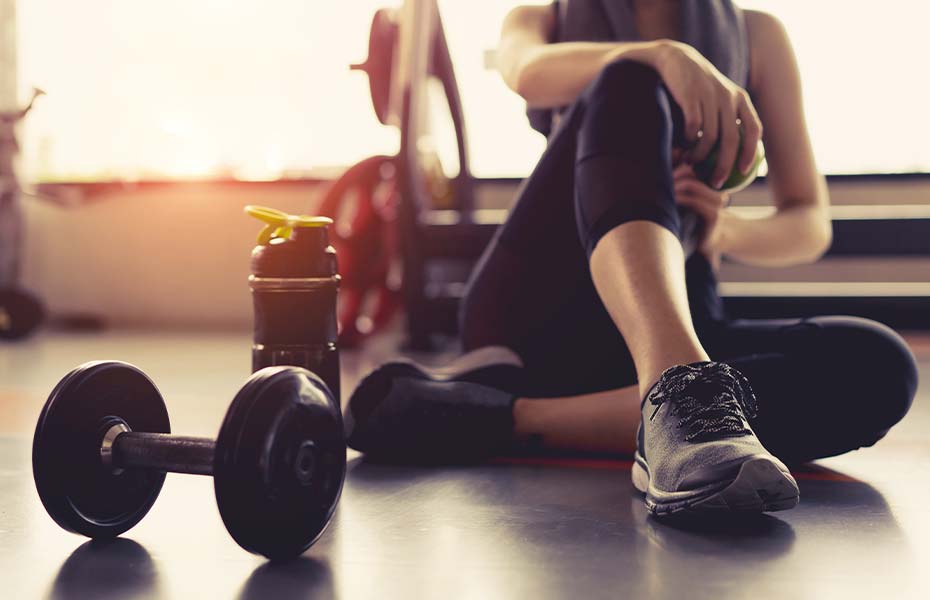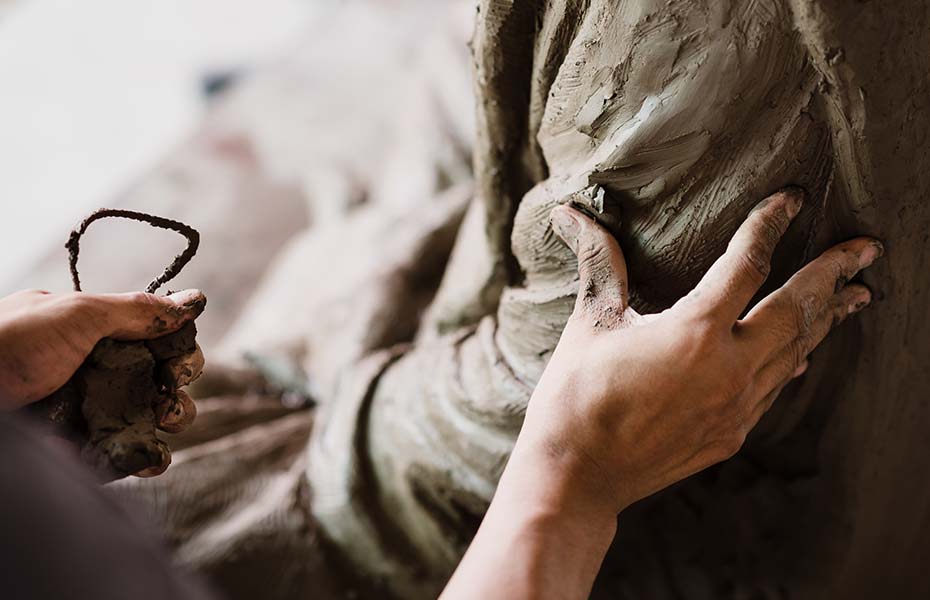Jul 18, 2023
Essential Coping Skills for Addiction Recovery: A Comprehensive List
Addiction recovery is often a challenging journey, fraught with complications and obstacles. However, it is ultimately rewarding and necessary for those struggling with substance abuse. One of the most critical aspects of this journey is developing strong coping skills to handle stresses and triggers that can lead to relapse. This blog post will delve into various coping strategies beneficial in addiction recovery, providing a comprehensive list of essential techniques.
When talking about addiction recovery, one might think of detoxification, therapy sessions, and support groups. These are undeniably crucial components, but the coping skills individuals develop during this process are equally important. Coping skills help individuals manage their addiction outside the confines of treatment facilities, assisting them in maintaining sobriety in the face of real-life struggles and stressors.
Understanding Coping Skills in Addiction Recovery
Coping skills are strategies or techniques that an individual uses to deal with stressful or uncomfortable situations. In the context of addiction recovery, coping skills are used to deal with cravings, triggers, and the emotional toll of overcoming addiction. They can include anything from relaxation exercises to cognitive behavioral techniques. The key is that these strategies must be healthy and productive, not contributing to further substance abuse or other harmful behaviors.
Importance of Coping Skills in Recovery
The importance of coping skills in addiction recovery cannot be overstated. Substance abuse is often a misguided attempt to cope with life’s challenges, including stress, trauma, and mental health issues. Hence, when one stops using substances, one must find new, healthier ways to deal with these issues.
Without adequate coping skills, the risk of relapse increases significantly. The development of coping skills also contributes to improved mental health, better relationships, and overall higher quality of life.
Types of Coping Skills for Addiction Recovery
Numerous coping skills, each serving different purposes, can aid in addiction recovery. Exploring various coping strategies is essential to find what works best for you. Here are some types of coping skills you might consider:

Healthy Coping Skills
Healthy coping skills are behaviors or practices that contribute positively to your physical, emotional, and mental well-being. These skills can help reduce stress, manage cravings, and promote recovery. They can include:
Exercise and Physical Activities
Physical activities like jogging, swimming, yoga, or even walking can have immense benefits in addiction recovery. Exercise releases endorphins, chemicals in your brain that act as natural painkillers and mood elevators. Regular physical activity can help manage stress, improve mood, boost self-confidence, and distract from cravings.
Meditation and Mindfulness
Meditation and mindfulness involve focusing on the present moment and accepting it without judgment. These practices can help manage cravings, reduce stress, improve mental clarity, and promote emotional stability. They can be practiced almost anywhere, making them versatile coping skills.
Journaling and Expressive Writing
Writing provides a safe outlet for expressing thoughts, feelings, and experiences. Journaling can help clarify thoughts, reduce stress, manage emotions, and improve self-awareness. Expressive writing can also be therapeutic, helping to process traumas and challenging experiences related to substance abuse.
Social Support and Connection
Developing supportive relationships can provide emotional support, practical assistance, and a sense of belonging — all of which are crucial in addiction recovery. This can involve participating in support groups, nurturing existing relationships, or developing new ones.
Healthy Hobbies and Activities
Pursuing hobbies or activities that you enjoy is a great way to cope with stress, distract from cravings, and build a fulfilling, substance-free life. This can range from art, music, gardening, reading, cooking, or anything else that brings you joy and occupies your time productively.
Healthy Eating and Nutrition
A balanced diet can help repair the physical damage caused by substance abuse, boost energy levels, improve mood, and promote overall health. Paying attention to nutrition can also give individuals in recovery a sense of control and accomplishment.

Creative Coping Skills
Creative coping skills involve using artistic expression to manage stress, emotions, and cravings. These can be particularly helpful for those who find traditional therapies challenging or who naturally gravitate toward creative outlets. They can include:
Art Therapy
Art therapy involves using art to express and understand emotions. This can be through painting, drawing, sculpting, or any other form of visual art. Art therapy can help reduce stress, improve self-esteem, and provide a non-verbal medium for expressing complex emotions.
Music Therapy
Music therapy can involve listening to, creating, or moving to music. It can evoke emotions, stimulate memories, and provide a soothing effect. Whether it’s playing an instrument, singing, or simply listening to your favorite tunes, music can be a powerful coping tool.
Dance Therapy
Dance therapy combines the benefits of physical activity and artistic expression. Dancing can help release pent-up emotions, reduce stress, improve body image, and provide a fun, engaging way to cope with challenges.
Writing and Poetry
Writing or composing poetry allows for the expression of thoughts and feelings in a structured, creative way. This can provide a sense of achievement, a means of self-exploration, and a way to reframe negative experiences in a more positive light.
Drama and Theater
Participating in drama and theater can provide a safe space to explore emotions, practice social skills, and gain insight into personal experiences. It can also provide a sense of community and belonging, which can be very beneficial in recovery.

Cognitive Coping Skills
Cognitive coping skills involve changing the way you think about and interpret situations. These techniques are often taught in cognitive-behavioral therapy (CBT) but can also be practiced independently. They can include:
Cognitive Restructuring
Cognitive restructuring involves identifying and challenging negative thought patterns that contribute to substance abuse. By replacing these thoughts with more realistic and positive ones, you can change your reactions to stressors and reduce cravings.
Positive Self-Talk
Positive self-talk involves consciously replacing negative thoughts with positive and affirming statements. This can help boost self-esteem, reduce self-doubt, and promote a more optimistic outlook on life. By reframing your thoughts, you can build resilience and maintain motivation in recovery.
Problem-Solving
Developing problem-solving skills can help you address challenges and obstacles in a more constructive way. This involves breaking problems down into manageable steps, brainstorming solutions, and evaluating outcomes. Problem-solving skills can empower you to take control of your recovery journey.
Mindfulness and Meditation
Mindfulness and meditation are beneficial for relaxation and cultivating awareness of your thoughts and emotions. By practicing mindfulness, you can observe cravings or negative thought patterns without judgment, allowing them to pass without acting on them.
Relaxation Techniques
Various relaxation techniques, such as deep breathing exercises, progressive muscle relaxation, or guided imagery, can help calm the mind and body. These techniques can be helpful during moments of stress or anxiety to promote relaxation and reduce the urge to use substances.
Implementing Coping Skills in Addiction Recovery
Developing coping skills is one thing, but effectively implementing them in your daily life is another. Here are some strategies to help you integrate coping skills into your addiction recovery:
Identifying Triggers and Stressors
Understanding your triggers and stressors is vital for effective coping. By identifying situations, people, or emotions that might lead to cravings or relapse, you can proactively develop coping strategies to navigate these challenging moments.
Building a Coping Skills Toolbox
Create a toolbox of coping skills you can rely on when facing specific challenges. This can include a variety of techniques from different categories, ensuring that you have a range of options to choose from depending on the situation.
Creating a Coping Skills Plan
Develop a personalized coping skills plan that outlines which techniques you will use in different scenarios. Having a plan in place can help you stay focused and prepared when faced with stress or triggers.
Seeking Professional Help and Support
While developing coping skills independently is possible, seeking professional help and support can greatly enhance your recovery journey. Therapists, counselors, and support groups can provide guidance, accountability, and additional coping strategies tailored to your needs.
Overcoming Challenges in Using Coping Skills
Implementing coping skills in addiction recovery is not always easy, and various challenges may arise. Here are some common hurdles and strategies to overcome them:
Dealing with Cravings and Urges
Cravings and urges can be intense and difficult to manage. When faced with cravings, try using distraction techniques, engaging in physical activities, or reaching out to your support network for guidance and encouragement.
Managing Relapse Triggers
Relapse triggers can be environmental, emotional, or social factors that increase the risk of substance use. Identifying these triggers and developing strategies to avoid or cope with them is essential. This can involve removing yourself from triggering situations, practicing self-care, or seeking professional help when needed.
Maintaining Consistency and Motivation
Consistency and motivation can waver throughout the recovery journey. To stay on track, set realistic goals, celebrate small victories, and remind yourself of the reasons why you chose sobriety. Surrounding yourself with a supportive network can also provide the encouragement and accountability needed to maintain consistency.
Integrating Coping Skills into Daily Life
The ultimate goal is to seamlessly integrate the developed coping skills into daily life, making them a natural part of one’s routine. Here are some strategies to help you achieve this:
Incorporating Coping Skills into Routine
Create a schedule that includes designated times for practicing coping skills. By making them a regular part of your routine, you reinforce their importance and ensure they become habitual.
Using Coping Skills in Challenging Situations
When faced with challenging situations, remind yourself of the coping skills you’ve learned and practiced. Take a moment to breathe, reflect on your options, and choose the most appropriate coping strategy for the situation at hand.
Nurturing a Healthy Lifestyle
Coping skills are not limited to managing stress and cravings. They are also essential for maintaining a healthy lifestyle overall. Prioritize self-care, engage in activities that bring you joy, and surround yourself with supportive individuals who share your commitment to sobriety.
Building Your Toolbox: Coping Skills for Lasting Sobriety
Coping skills play a vital role in addiction recovery, helping individuals navigate the challenges, stresses, and triggers that can lead to substance abuse. By developing and implementing healthy coping skills, individuals can enhance their overall well-being, maintain sobriety, and lead fulfilling lives free from the grip of addiction. Remember, recovery is a journey, and building a toolbox of coping skills is a lifelong process that requires patience, self-compassion, and ongoing support.

Contact Us

Address
Quincy, MA 02169
Start your recovery with
Massachusetts Center for Addiction
Our team is available 24 hours a day, 7 days a week to answer any questions you may have. Give us a call today and begin your journey toward long-term recovery.






